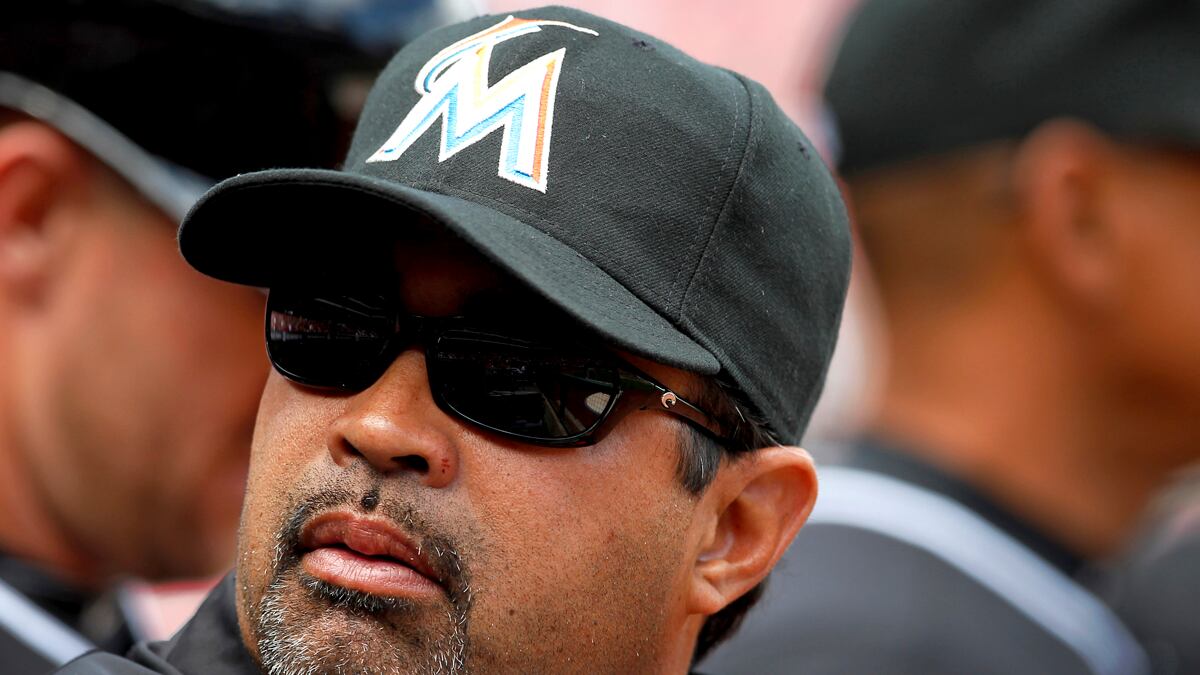Glenn Llopis, the son of Cuban immigrants who were victims of Fidel Castro’s revolution, is the founder of the Center for Hispanic Leadership, and a leading voice in America’s Hispanic community. Not surprisingly, he has been closely monitoring the controversy over Miami Marlins manager Ozzie Guillen.

Guillen was suspended for five games after being quoted in a Time magazine article saying “I love Fidel Castro.” On Tuesday, an emotional and contrite Guillen went before the cameras and apologized for more than an hour for his remarks.
Llopis, a former corporate executive who is based in Southern California, recently created the 2012 Hispanic Voice Town Hall tour to spark a nationwide election-year dialogue among the country’s Hispanic population—currently 60 million and growing. With Guillen’s comments now part of that election-year dialogue, Llopis talked to The Daily Beast’s Jamie Reno about the fallout.
THE DAILY BEAST: What was your reaction when you first heard Guillen’s comments?
After the initial shock, I immediately thought to myself, “This is slow death in the making.” He [Guillen] insulted the people that he had to please the most. If you’re rebranding a major-league franchise, and you’re essentially the face of the franchise, you have an obligation. You are essentially a PR person by default. I mean, he brought in Latin players; he’s putting together a team of “Latino All Stars,” if you will, and he was doing a good job of bringing it all together. His hire was part of a major marketing effort.
Can he recover from this and save his job?
I don’t think so. I’m not someone who is demanding that he be fired, but from a marketing standpoint, for him to say what he said, especially as the coach of a team whose stadium is located right in the heart of Little Havana, he’s simply lost too much credibility to revive it. This story is really not about him, though, it’s much bigger. These comments have offended an entire community in South Florida and beyond, and put the entire baseball franchise, and really Major League Baseball’s standing in the Hispanic community, at risk. If they don’t let [Guillen] go, it could hurt baseball’s business nationwide.
What kind of impact are you seeing this story have on the Hispanic community?
I’m seeing a combination of sadness and frustration. I was at the dry cleaner’s the day after the story broke, and two ladies were talking—one was Mexican, the other was Argentinian. I asked them about Ozzie, and their first response was, “Nothing will change.” The feeling among many Hispanics I’ve spoken to this week is that this is just another example of negative media coverage of a Hispanic. Each time a story like this appears, it weakens the community a bit; it takes something away from a community that is collectively trying so hard to advance itself. Hispanics are trying to play a greater role in the economic revival of America, they are hungry for leadership and to make a real mark, but when the rest of America identifies them with issues like this, it just fuels the fire and makes things more challenging.
Do you think Major League Baseball has handled this situation well?
No, the league needs to step up and show more accountability. [Commissioner] Bud Selig made some properly condemning comments, but that isn’t enough. The league has to nip this one in the bud real fast because this incident could initiate a backlash in the Hispanic community across the country. Right now it’s a baseball issue, but it can easily spill over. The problem is, the league has not adequately leveraged its platform to advance Hispanics. There are not a lot of Hispanics at the top in Major League Baseball, and just like in the corporate world, when you lack diversity in the executive ranks, how can you really understand the implications of incidents like this?
What specifically do you think the league should do?
Major League Baseball should create a new initiative focused on teaching its coaches and Hispanic players about having a greater sensitivity to various cultural nuances and do a better job of training them specifically to become leaders and give them better guidance on how to deal with the media, especially given the language barriers. That way there can be more of an intellectual conversation. If you’ve noticed, we’re not hearing much from other Hispanic players in the league right now about this, only a few. So instead, you have people who are not Hispanic driving the conversation. That’s the same thing I see in business, and politics. We are the fastest growing population in America and represent a large number of fans that go to and watch those games. Baseball has a real opportunity here to take the lead on something that no one has taken the lead on. It’s time to stop looking at Hispanics as employees and start elevating us as leaders.
Who do you think is most negatively affected by Guillen’s comments?
Well, besides the Cuban-Americans in South Florida, I think his incredibly insensitive remarks and the subsequent media coverage of all of this particularly affect Hispanic youth and young professionals across the nation. Young Hispanics in America are affected greatly and disheartened by such irresponsible comments at a time when they are seeking to earn a voice, an identity that is influential and that matters and that the rest of America can trust. That’s why I appreciate interviews like this where we can talk about the issue thoughtfully and not sensationalize it.
Would this have been as big a story 20 years ago?
No. This is an example of how the changing face of America is forcing new standards and forcing us to deal with things we’ve never had to deal with before. This is new. Twenty years ago it would have affected a lot of Cubans, of course, but given the growth of the Hispanic population, this kind of story now generates page-one headlines and needs to be addressed on a much broader scale.
How significant is the fact that Guillen is Venezuelan and not Cuban?
It is, and it isn’t. Every Hispanic culture in America is unique, and this incident does illustrate the fact that these different cultures do not always do a good enough job of understanding one another and uniting with one another. It also demonstrates that many non-Hispanics look at all of us as one singular culture. I do not think Ozzie had any malice toward Cubans specifically in his comments. But he made a huge mistake, and I am certainly not excusing it, there is absolutely no way to excuse it. If he is given a pass by Major League Baseball, if they just give him this five-day suspension and drop the issue, it is setting the wrong precedent for the league, for the Hispanic community and for what America is going to look like and how we will deal with things like this in the future.






